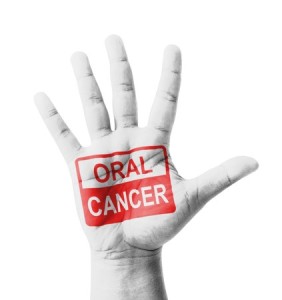Oral Cancer Screening
 Many people may not be aware of this, but it is actually the dental practitioners and not general physicians who are responsible for examining, diagnosing and even treating oral cancers. This is because during routinely dental checkups, the dentist examines all parts of the oral cavity including the soft tissues for any abnormalities or changes in appearance, color or texture. Once an abnormality of this sort is detected, the dentist may advise further tests, conduct biopsies or initiate treatment immediately depending upon the nature and extent of the condition.
Many people may not be aware of this, but it is actually the dental practitioners and not general physicians who are responsible for examining, diagnosing and even treating oral cancers. This is because during routinely dental checkups, the dentist examines all parts of the oral cavity including the soft tissues for any abnormalities or changes in appearance, color or texture. Once an abnormality of this sort is detected, the dentist may advise further tests, conduct biopsies or initiate treatment immediately depending upon the nature and extent of the condition.
At Jeanne Taylor, DDS, the team of highly qualified dental professionals as per protocol examines every patient for oral cancers or pre-cancerous lesions regardless of their presenting complaint. This is because the sooner an oral cancer is diagnosed; the easier it is to treat it at an earlier stage. The prognosis of a cancer detected during initial phases is much more promising as compared to that diagnosed at advanced stages.
Oral cancer screening only takes a couple of minutes and is an entirely painless, non-invasive procedure. During the screening, the dentist carefully examines the oral cavity including all soft tissues using a mouth mirror, tweezers and dental probes. If no changes are detected upon visual examination, the dentist may proceed with other procedures. Two of the most prominent signs of pre-cancerous conditions are red lesions and white lesions present on the soft tissues. Oral cancers are graded and treated based on their malignancy, spread, origin and nature. Common diagnostic tests for oral cancers include excisional and incisional biopsies; both procedures involve numbing of the affected region and removing a portion of the potential cancer to be sent for further analysis.
There are a number of factors that can lead to the development of oral cancers in men and women of all ages. We can prevent this potentially fatal condition by avoiding certain habits such as smoking, tobacco chewing, excessive alcohol consumption, betel nut or areca nut chewing and certain unprotected oral sexual practices. In some cases, such as hereditary involvement or malignant spreads, cancers cannot be avoided – however, regular visits to the dentist can play a crucial role in the early screening, diagnosis, treatment and elimination of cancer.

